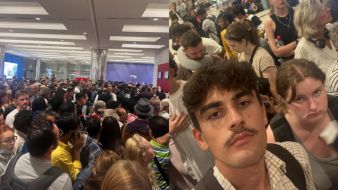Public behaviour is not reflective of attitudes towards the current Covid-19 lockdown, according to new Government research.
Data tracking both public opinion and social activity show a “big difference in how people are feeling and how they behave,” according to the head of the Behavioural Research Unit at the ESRI.
Speaking at a briefing of the National Public Health Emergency Team (Nphet) on Monday evening, Professor Pete Lunn said researchers had found no evidence that public compliance towards Covid-19 restrictions was falling, despite widespread feelings of frustration.
“How we’re feeling is different to how we behave,” he said.
“Data from the Public Opinion Tracking Survey Research (Amárach/Department of Health) and from the new Social Activity Measure (ESRI/Department of the Taoiseach), give insight into how people are coping with the prolonged period of restrictions.
“The evidence shows that while people are finding it tough going, the large majority (79 per cent) believe that preventing the spread of Covid-19 is more important than the burden of restrictions. Just 10 per cent disagree.”
Record compliance
“This pattern helps to explain how measures of compliance have been rising in recent weeks and months, despite the frustrations that people feel,” Prof Lunn added.
“Just because we feel a particular way, does not mean that this feeling dictates our behaviour. Rather, the large majority of people in Ireland support the restrictions and are sticking to them, despite the frustrations.”
Prof Lunn said compliance was currently the highest it had been since data first began to be collected in May 2020.
He added that people tended to “greatly overestimate” how socially active other people were.
“The data also show systematic misperceptions about socially activity. Presently, half the adult population does not meet up with anyone outside their household over a 48-hour period, with less than one quarter meeting up with three or more.
“Yet these more socially active people believe that they are meeting fewer people than average.
“There is a clear misperception. Most people believe that others are enjoying more of a social life than they are.
“Those who are in fact most socially active do not realise this. The finding is important, and we need to try to correct this misperception. When people appreciate effort being made by others, they typically become more likely to follow.”







